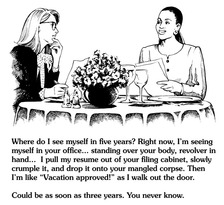There are so many associations; Chamber of Commerce, Girl Scouts, Boy Scouts, Toastmasters, Church, and Job Networking Associations, there are plenty of legitimate resources for everyone.
There are 4 main groups which benefit from networking: Each helps you if you are looking for a full-time job.
1) Association Interest
2) The stay at home Mom’s and Dad’s who are raising children.
3) The return to work force Group (people who aren’t working now but desiring to come back to work)
4) Those currently working
Here are some benefits all these groups will realize from legitimate volunteering
· Leadership role
· Skills & Experience
· Networking
When you volunteer, it looks very good on your resume for the above reasons. Volunteering gives you leadership skills, more knowledge in an area and trains you to network with others with similar interests and skills.
This knowledge and experience will raise your value to an employer while enhancing your abilities to take advantage of market awareness.
You have to learn how to translate these skills to the employer that is hiring. They need to understand how those skills are transferable and what that means to the company.
Some businesses do not take volunteering seriously nor do they equate it to experience in other jobs. That is why you need to do research so you can get the employer to understand why and how it really is comparable experience and ability.
Take that opportunity and volunteer today! Make a difference to both the community and to your life!
Growth Management Group/ 770-945-5445/ [email protected]
www.askbestinterviewquestions.com ©










 RSS Feed
RSS Feed
